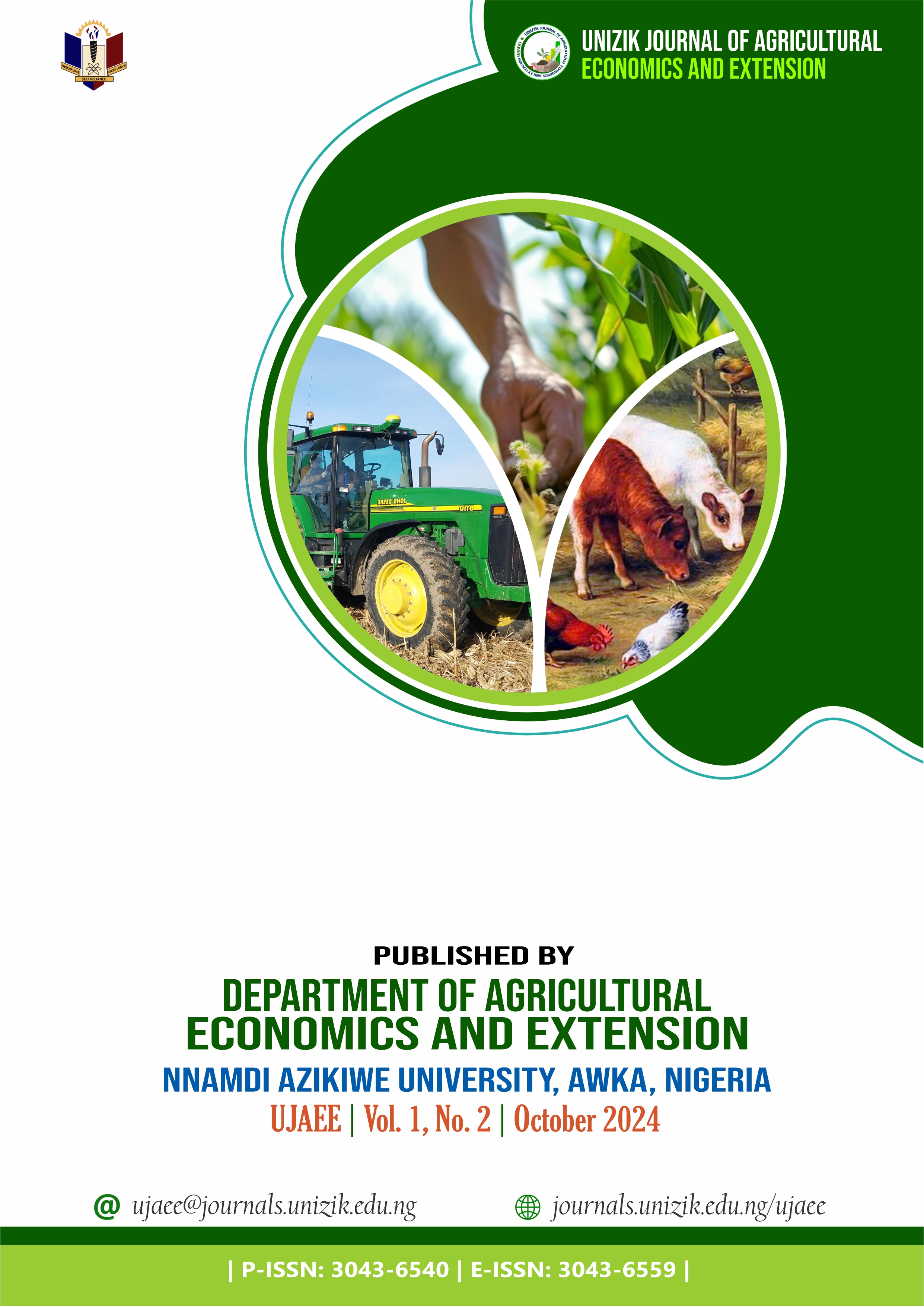Assessment of Poultry Farming in Kwaya Kusar Local Government Area of Borno State, Nigeria
Keywords:
Adoption, Improved practices, Poultry farmingAbstract
The Nigerian poultry industry is essential to the country's economy, as it supports job creation and food security. However, it encounters challenges that significantly hinder its growth. Evaluating poultry farming can provide insights into the factors affecting production levels, the affordability, and accessibility of poultry products, ultimately aiding efforts to enhance food security and nutrition. This study aimed to evaluate poultry farming practices in the Kwaya Kusar Local Government Area of Borno State. Data were gathered from 99 poultry farmers using a multistage sampling technique, primarily through a structured questionnaire. Both descriptive statistics and probit regression analyses were utilized to meet the study's objectives. The socio-economic analysis indicated that the poultry farmers were predominantly in their prime working years, with an average age of 44.4 years. Most of the farmers (75.8%) were male, and their average experience in poultry farming was 7.9 years. The average household size was 8 individuals, and the average poultry flock consisted of 337 birds. Additionally, 57.6% of the farmers had access to credit and received an average of 3 extension visits per month. Regarding improved poultry practices, the study found that a significant majority of respondents adopted convenience/ventilation practices (85.86%), followed by vaccination (82.82%) and bio-security measures (77.78%). Factors influencing the adoption of these practices included poultry size, household size, cooperative society membership, and the number of extension visits. These factors significantly impacted the adoption of improved practices, with probability levels of 1%, 5%, 5%, and 1%, respectively. The study also identified challenges faced by poultry farmers, with the high cost of feed being the predominant issue (88.88%). It is recommended that the government implement funding and policies to enhance extension services in the region.
Downloads
Published
Issue
Section
License
Copyright (c) 2024 UNIZIK Journal of Agricultural Economics and Extension

This work is licensed under a Creative Commons Attribution-NonCommercial-NoDerivatives 4.0 International License.




